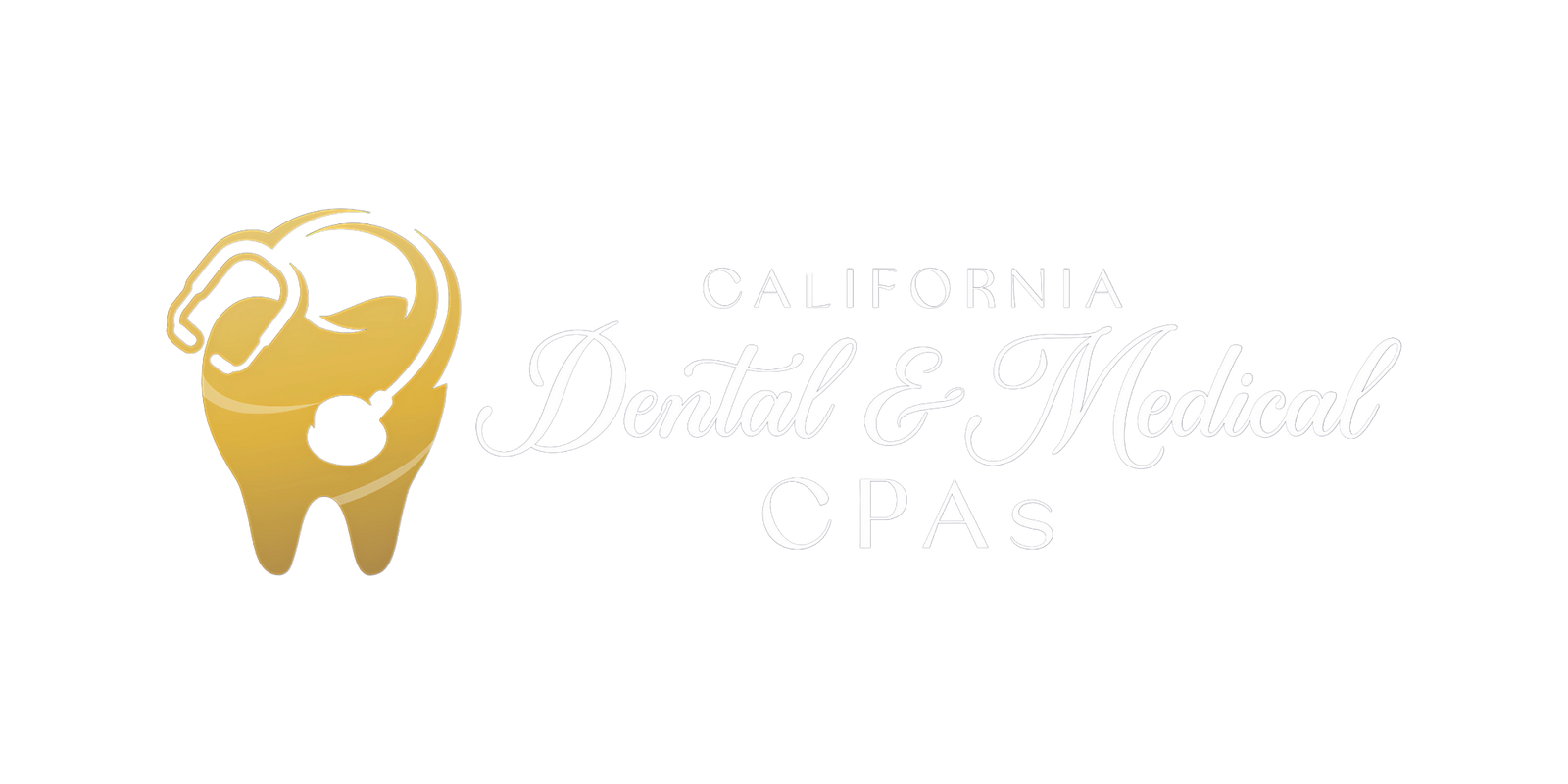Being a medical professional means you’ve got a lot on your plate. Between patient care, managing a practice, and keeping up with the latest medical stuff, who has time to worry about taxes and finances? That’s where an accountant for medical professionals comes in. They get the special rules and challenges you face, helping you keep more of your hard-earned money and make sure your practice stays healthy.
Key Takeaways
- Medical professionals have special financial needs that regular accountants might not understand.
- Smart tax planning can save doctors and practices a lot of money.
- Good financial habits help medical practices run better and make more money.
- Planning for the future, like retirement, is important for doctors.
- Picking an accountant who knows the healthcare world makes a big difference.
The Unique Financial World of Medical Professionals
Why Standard Accounting Isn’t Enough
Medical professionals operate in a financial landscape unlike most other businesses. It’s not just about tracking income and expenses; there are many specific rules and regulations that apply only to healthcare. A general accountant might miss these details, which can lead to problems. The financial operations of a medical practice require a specialized approach to ensure compliance and maximize financial health. For example, understanding how to handle insurance reimbursements, which can be complex and often delayed, is a big part of managing cash flow. Also, there are specific deductions and credits that only apply to medical practices, and missing these can mean paying more in taxes than necessary. This is why specialized healthcare accountants are so important.
Common Challenges Doctors and Practices Face
Doctors and medical practices deal with a lot of unique financial hurdles. One big one is managing the revenue cycle, from patient billing to insurance claims and collections. This process can be very time-consuming and complicated. Another challenge is staying on top of ever-changing healthcare regulations, like HIPAA, which have financial implications. Plus, many doctors are self-employed or have 1099 income, which means different tax rules apply compared to a W2 employee. High income can also bring more scrutiny from tax authorities, making careful record-keeping and planning even more important.
Medical professionals often face a balancing act between providing excellent patient care and managing the complex financial aspects of their practice. This dual focus means they need financial partners who truly understand their world, allowing them to concentrate on what they do best: medicine. Without this specialized support, financial oversight can become a significant burden, potentially impacting both the practice’s stability and the doctor’s personal finances.
Strategic Tax Planning for Maximum Savings

Key Deductions and Credits for Medical Practices
For medical practices, understanding and using available tax deductions and credits is a big deal. It’s not just about filling out forms; it’s about keeping more of your hard-earned money. Things like equipment purchases, office supplies, and even continuing education can often be deducted. For example, if you buy new medical equipment, you might be able to deduct the full cost in the year you buy it, thanks to Section 179 expensing. Or, you could use bonus depreciation. It really depends on your practice’s financial situation, and a good accountant helps you figure out the best way to go. There are also credits, which are even better than deductions because they directly reduce the amount of tax you owe, dollar for dollar. These can be for things like hiring certain types of employees or investing in specific technologies. Knowing which deductions and credits apply to your practice can significantly lower your tax bill.
Tax Planning for Self-Employed and 1099 Income
If you’re a self-employed doctor or get a lot of 1099 income, tax planning is a bit different, but super important. You’re basically running your own business, even if it’s just you. This means you’re responsible for both the employer and employee portions of Social Security and Medicare taxes, which can add up fast. But, being self-employed also opens up more opportunities for deductions. You can deduct business expenses like home office costs, professional insurance, and even travel for conferences. One smart move is setting up a retirement plan, like a SEP IRA or a Solo 401(k), because contributions are often tax-deductible. This helps with your retirement savings and lowers your taxable income at the same time. It’s all about being proactive with your Tax Planning Strategies for Self-Employed Doctors.
Many doctors have multiple income streams, like consulting or speaking gigs, on top of their regular practice income. Each of these streams needs careful tax consideration to make sure you’re not paying more than you have to. A good plan helps you structure your income in a way that’s tax-friendly, maybe even by setting up an S-corporation for pass-through income. The goal is always to reduce your overall tax burden while still making the most of your income.
Navigating High Income and Potential Audits
Having a high income is great, but it also means more attention from the IRS. This doesn’t mean you’re doing anything wrong, but it does mean you need to be extra careful with your tax filings. It’s not uncommon for high-income earners to face audits, so having everything in order is key. This includes keeping detailed records for all your deductions and income, and making sure your financial statements are accurate. Working with a specialized accountant, like a medical CPA, can really help here. They know the ins and outs of tax law for medical professionals and can help you prepare for any questions the IRS might have. They can also help you explore options like Best Retirement Plans for Physicians to Save on Taxes to manage your taxable income effectively. It’s about being prepared and having a solid strategy in place, so you don’t get caught off guard.
Building Financial Health for Your Practice

Optimizing Revenue Cycle Management (RCM)
Getting paid on time is a big deal for any medical practice. It’s not just about sending out bills; it’s about making sure those bills get paid quickly and correctly. This whole process, from when a patient comes in until the money is in your bank, is called Revenue Cycle Management, or RCM. If your RCM isn’t working well, you could be losing money without even knowing it. A smooth RCM process means fewer denied claims and faster payments.
Here are some things that can help:
- Checking patient insurance eligibility before appointments.
- Making sure all services are coded correctly.
- Following up on unpaid claims right away.
- Having a clear system for patient co-pays and deductibles.
Many practices struggle with delayed reimbursements. A strong RCM system helps you stay on top of what’s owed, making sure you don’t miss out on income.
Managing Costs and Improving Profitability
Keeping an eye on your spending is just as important as bringing in money. For medical practices, costs can add up fast, from supplies to staff salaries. Knowing where your money goes helps you find ways to save without cutting corners on patient care. This is all about increasing medical practice profitability through financial management.
Consider these areas for cost control:
- Negotiating better deals with suppliers for medical equipment and disposables.
- Reviewing staffing levels and optimizing schedules.
- Looking at your insurance premiums and other fixed costs.
- Investing in technology that can automate tasks and reduce manual errors.
Effective Cash Flow Management
Cash flow is the lifeblood of any business, and medical practices are no different. It’s about the money coming in and going out. Even if you’re profitable on paper, if you don’t have enough cash to cover your daily expenses, you’re in trouble. This is where understanding how medical practice accounting improves cash flow becomes really important. Effective accounting and bookkeeping can make a huge difference here.
Here’s how to keep your cash flowing:
- Forecasting your income and expenses regularly.
- Setting aside funds for unexpected costs.
- Managing accounts receivable to ensure timely payments.
- Considering lines of credit for short-term needs, but using them wisely.
Utilizing Financial Reporting and Analysis
Numbers can tell a story about your practice, but only if you know how to read them. Financial reports like your profit and loss statement, balance sheet, and cash flow statement give you a snapshot of your financial health. Looking at these reports regularly helps you spot trends, make smart decisions, and plan for the future. For example, specialized dental accounting services often provide detailed reports that help dentists understand their financial standing.
Key reports to review:
- Profit and Loss (P&L) Statement: Shows your revenues and expenses over a period, telling you if you’re making money.
- Balance Sheet: A snapshot of your assets, liabilities, and owner’s equity at a specific point in time.
- Cash Flow Statement: Tracks the actual cash moving in and out of your practice.
By analyzing these reports, you can see where you’re doing well and where you might need to make changes. For instance, effective dental accounting can highlight areas for improvement in revenue or cost management.
Long-Term Financial Strategies

Retirement Planning Options for Doctors
Planning for retirement is a big deal for medical professionals. It’s not just about putting money away; it’s about making smart choices that fit your unique situation. Doctors often have different income patterns and career lengths compared to other jobs, so a standard retirement plan might not cut it. You need a strategy that accounts for your high earning potential and potentially later start to saving due to education and training.
Here are some common retirement options to think about:
- 401(k) and 403(b) Plans: These are pretty standard, especially if you work for a hospital or a larger practice. They let you contribute pre-tax dollars, which can lower your taxable income now. Many employers also offer matching contributions, which is basically free money.
- Solo 401(k): If you’re self-employed or own your practice, a Solo 401(k) is a powerful tool. It allows for much higher contribution limits than a traditional 401(k), letting you save a lot more for retirement each year. This is a great way to boost your retirement savings.
- SEP IRA: Another option for self-employed individuals, a Simplified Employee Pension (SEP) IRA also has high contribution limits. It’s generally simpler to set up and manage than a Solo 401(k), making it a good choice if you prefer less administrative hassle.
- Defined Benefit Plans: These plans, while more complex, can allow for very significant contributions, especially for older, high-income professionals. They are often used to accelerate retirement savings in a tax-efficient manner.
It’s important to consider your age, income, and how long you plan to work when picking a retirement plan. Each option has its own rules and benefits, and what works for one doctor might not work for another. Getting advice from someone who understands the financial world of medical professionals can make a big difference.
Asset Protection and Wealth Creation
Protecting your assets and building wealth are two sides of the same coin for medical professionals. Given the nature of your work, you face unique risks, like malpractice lawsuits, that can threaten your personal and professional assets. So, it’s not just about making money; it’s about keeping it safe and making it grow.
Here are some ways to protect your assets and create wealth:
- Proper Insurance Coverage: This is your first line of defense. Make sure you have adequate malpractice insurance, umbrella insurance, and disability insurance. These policies can shield your personal assets from unexpected events. For more information on how a specialized CPA can help, consider exploring medical CPA services.
- Legal Structures: Setting up the right legal structure for your practice, like an LLC or a corporation, can provide a layer of protection between your business liabilities and your personal assets. This separation is key for asset protection.
- Diversified Investments: Don’t put all your eggs in one basket. Spreading your investments across different asset classes—stocks, bonds, real estate, etc.—can reduce risk and help your wealth grow steadily over time. This is a core principle of wealth creation.
- Trusts: For significant wealth, establishing trusts can be an effective way to protect assets from creditors, reduce estate taxes, and control how your assets are distributed to heirs. This is especially relevant for those concerned about dental student debt and future financial stability.
- Reviewing Beneficiaries: Regularly check and update the beneficiaries on your retirement accounts, life insurance policies, and other assets. This ensures your assets go to the people you intend, avoiding potential probate issues and ensuring a smooth transfer of wealth.
Choosing the Right Medical Accountant

Finding the right accountant for your medical practice is a big deal. It’s not just about someone who can crunch numbers. You need a partner who gets the unique financial world of healthcare. This person should help you save money and grow your practice. It’s about finding someone who understands your specific needs, not just general business stuff.
What to Look for in an Expert Medical CPA
When you’re looking for a CPA, don’t just pick the first one you find. You want someone who really knows the medical field. A good medical CPA will understand things like insurance reimbursements, patient billing, and the specific tax rules that apply to doctors. They should be able to talk about Specialized Accounting Services for Medical Practice Owners without blinking. Ask about their experience with other medical practices. Do they work with practices similar to yours? Do they understand the challenges you face daily? A CPA who specializes in healthcare can offer insights that a general accountant might miss. They can help you with everything from managing your revenue cycle to planning for retirement. Look for someone who is proactive, not just reactive. You want someone who will help you plan for the future, not just clean up past messes. They should be able to explain complex financial ideas in a way that makes sense to you.
Why Specialized Healthcare Experience Matters
Healthcare is different from other businesses. There are so many rules and regulations, like HIPAA, that don’t apply to other industries. A CPA with specialized healthcare experience knows these rules inside and out. They understand the nuances of medical billing, coding, and compliance. This knowledge can save you a lot of headaches and money down the road. For example, they can help you avoid costly mistakes related to tax deductions or revenue recognition. They also know about specific grants or programs available to medical professionals.
A CPA who understands the healthcare landscape can help you make smart financial decisions that support your practice’s growth and stability. They can help you navigate the complex world of healthcare finance, making sure you stay compliant and profitable. This specialized knowledge is not just a bonus; it’s a necessity for any medical professional looking to optimize their financial health. They can help you with medical bookkeeping services and ensure your practice is set up for success. They can also help you understand the specific financial challenges that healthcare professionals face, offering tailored tax strategies and ensuring compliance. This allows you to focus on patient care while they handle the financial details. Ultimately, having a CPA with specialized healthcare experience means you have a partner who truly understands your business and can help you achieve your financial goals. They can also help with medical practice accounting to ensure you are making the most of your finances.
Picking the right accountant for your medical practice is super important. They help you with money stuff like taxes and keeping your books straight. If you want to learn more about how we can help, check out our website. We make sure your finances are in good hands so you can focus on your patients.
## Wrapping It Up
So, we’ve talked a lot about why accountants are a big deal for medical folks. It’s not just about doing taxes; it’s about making sure your money situation is solid, so you can focus on helping people. Getting a good accountant means you can save money on taxes, keep your practice running smoothly, and just generally feel better about your finances. It really helps you stay on top of things and build a strong future. Think of it as having a financial partner who’s got your back, letting you do what you do best without all the money worries.
Frequently Asked Questions
How do I pick the best accountant for my medical practice?
Choosing the right accountant for your medical practice is super important. You should look at their past work, what they’re good at, the services they offer, and how much they charge. For example, a company like CA Dental & Medical CPA focuses only on healthcare businesses, which means they know all the special rules and challenges doctors face.
What are some common money problems doctors run into?
Medical professionals often face unique money problems. One big one is getting paid late from insurance companies or patients. This can mess up your cash flow. Also, keeping track of all the different income streams and costs for various services can be tricky. A good accountant helps you keep an eye on these things so your practice stays healthy.
How can an accountant help me pay less in taxes for my practice?
An accountant can help you save a lot on taxes by finding every possible deduction for your medical practice. They know about special tax breaks for things like medical equipment, ongoing training, and even malpractice insurance. They can also help you plan your finances so you pay less tax overall and avoid problems with the IRS.
Do I really need a special accountant for my medical practice?
Yes, it’s a really good idea! While you might be able to handle simple money tasks yourself, a professional accountant who knows about medical businesses can be a huge help. They can track your income and costs for each service you offer, which helps you see where you’re making the most money and how to improve. Think of it like doing your own taxes versus having a tax expert do them – the expert knows all the ins and outs.
How do I handle money when insurance companies pay slowly?
Managing money when insurance payments are slow can be tough. An accountant can help you set up systems to keep track of who owes you money and make sure you get paid on time. They can also help you create a budget and manage your spending so you always have enough cash, even when payments are delayed.
What makes tax rules so complicated for doctors?
Tax rules for medical professionals can be very complex. You have to follow many different laws and regulations, which can be hard to keep up with. Also, if you earn a lot of money, the IRS might look at your taxes more closely. An accountant who specializes in healthcare can help you follow all the rules and make sure your tax returns are perfect.
Can an accountant help me plan for retirement and grow my savings?
Yes, absolutely! An accountant can help you plan for retirement by showing you different options, like special retirement accounts for doctors. They can also help you protect your money and grow your wealth over time, making sure you have a secure future.
Why is it better to have an accountant who specializes in healthcare?
A specialized healthcare accountant understands the unique financial world of doctors. They know about specific deductions, how to handle insurance payments, and the special rules for medical practices. This means they can give you much better advice and help you save more money than a general accountant.






